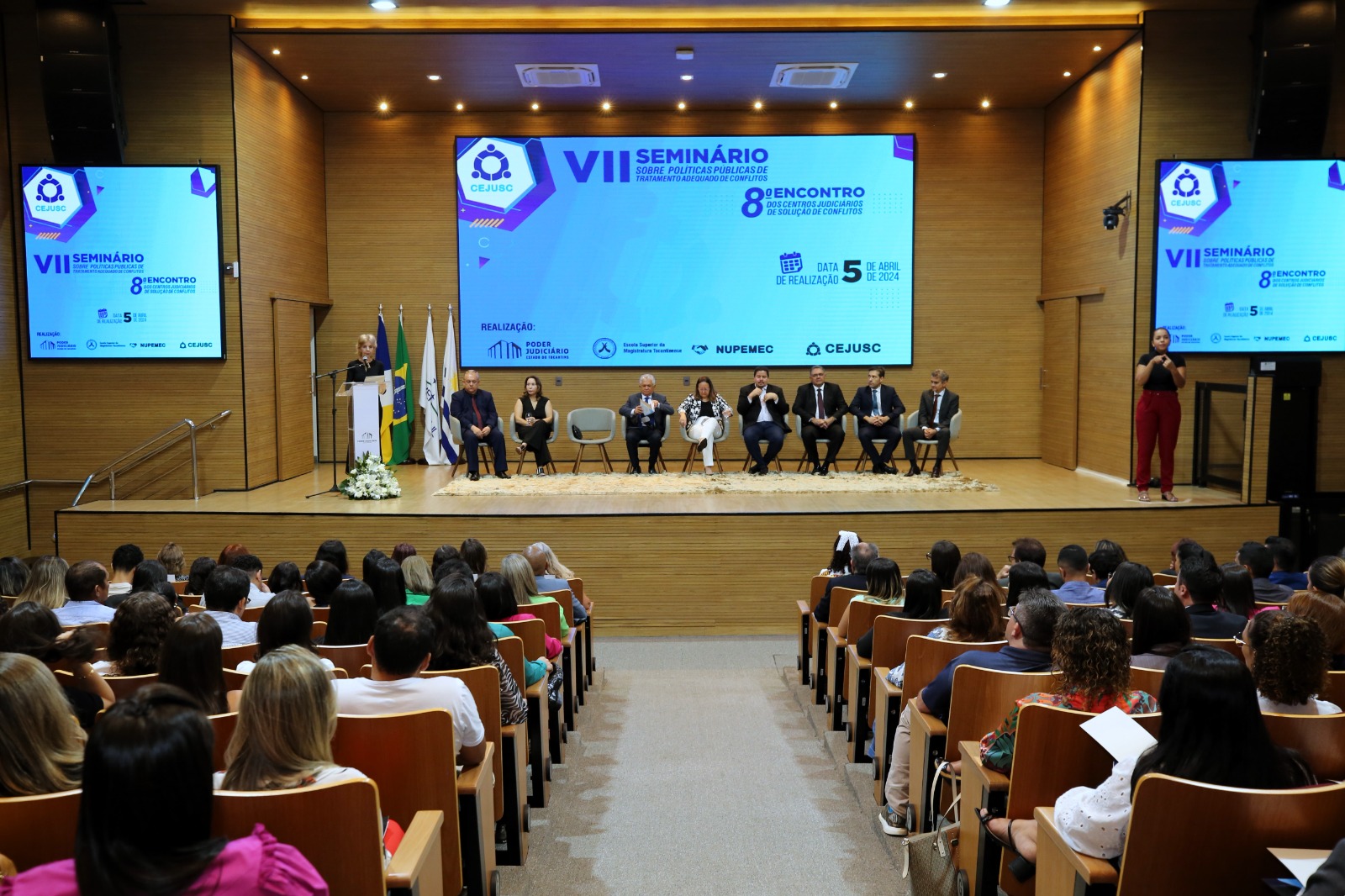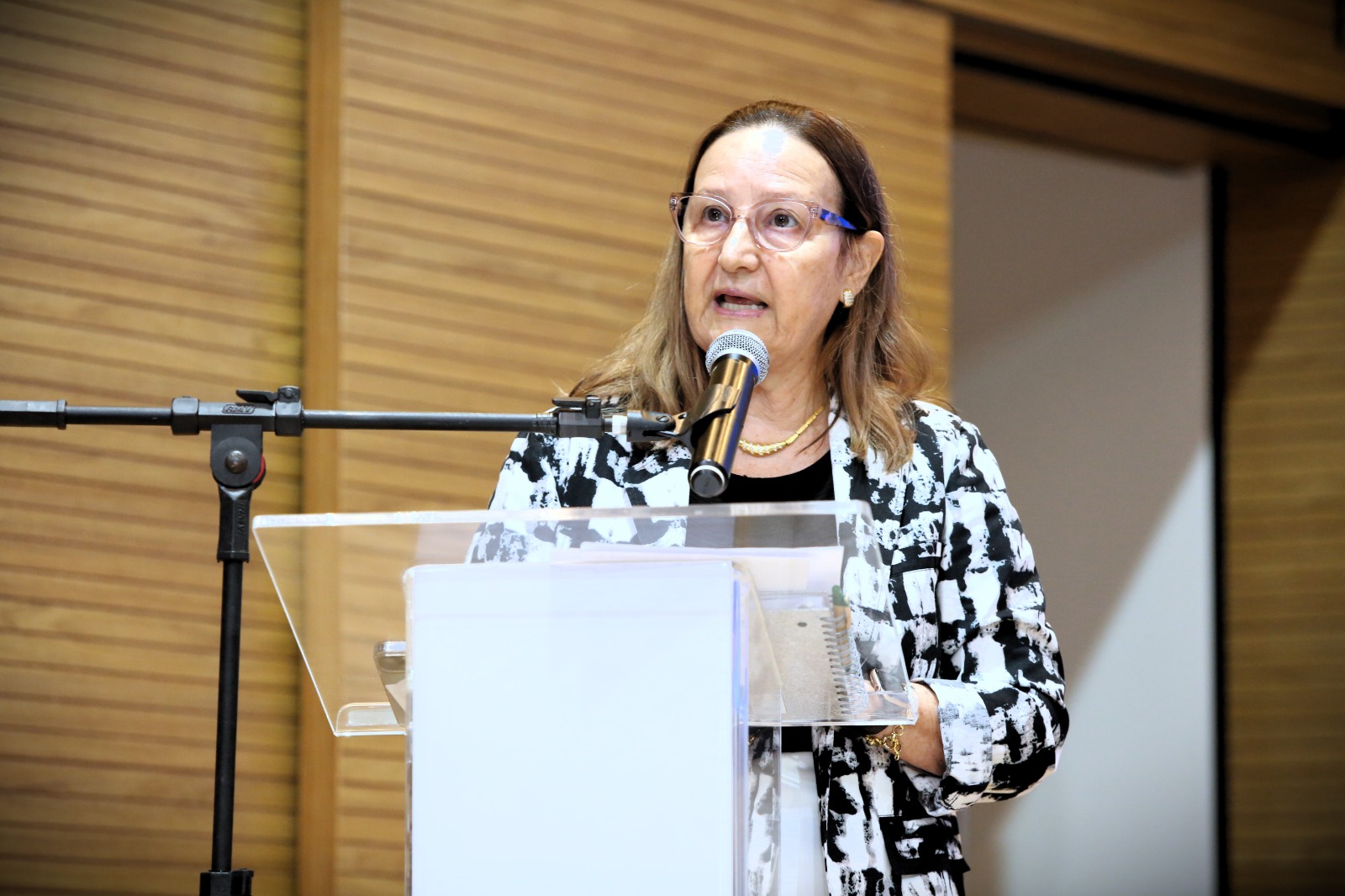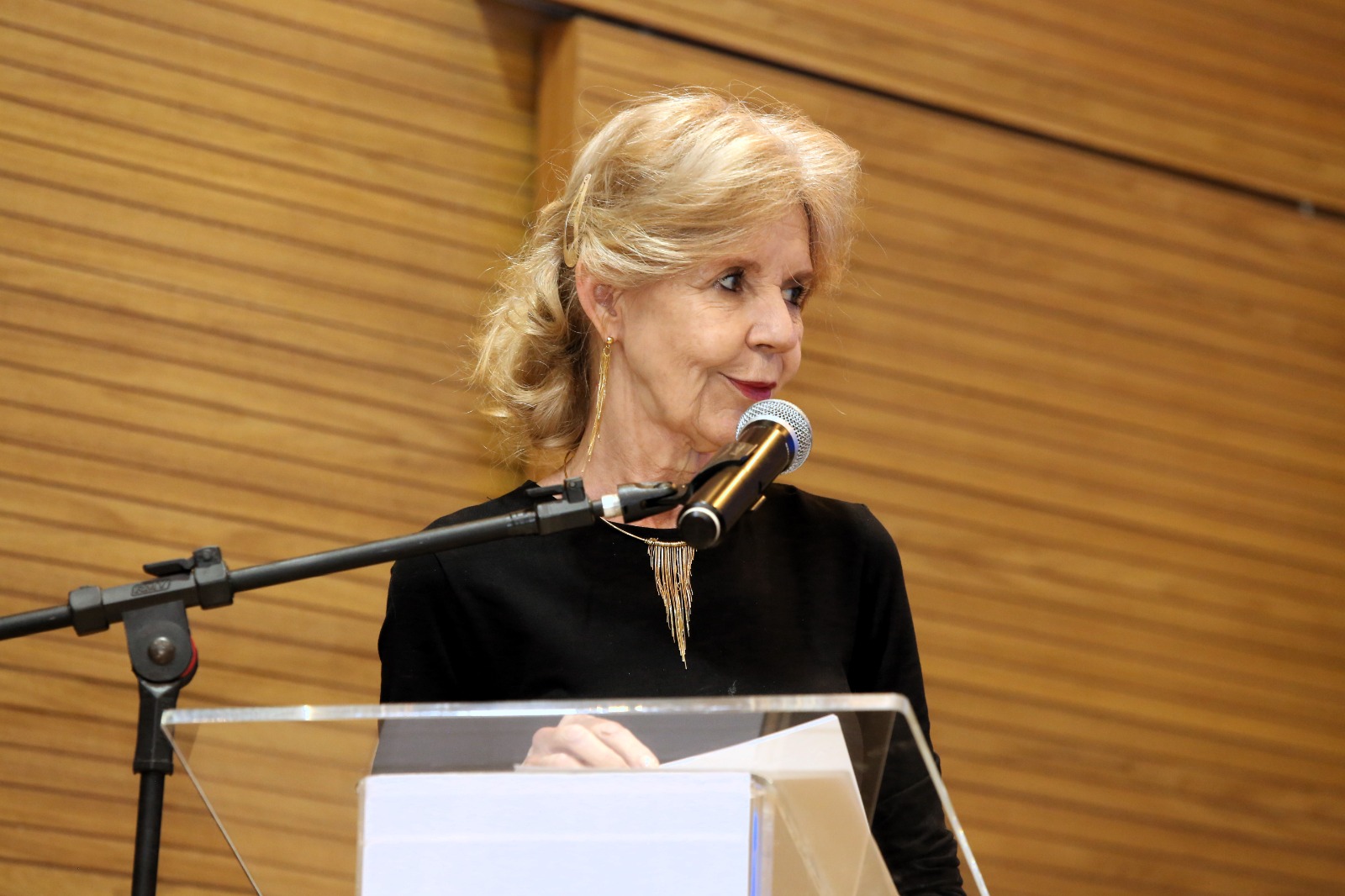
The coordinator of the Permanent Center for Consensual Methods of Conflict Resolution (Nupemec), Judge Silvana Maria Parfeniuk, presented the Portfolio containing the projects of the Restorative Justice of the Judiciary at the opening of the VII Seminar on Public Policies for the Adequate Treatment of Conflicts and the 8th Meeting of the Judicial Centers for Conflict Resolution (Cejuscs), on Friday morning (April 5th). The event, promoted simultaneously by the Judiciary of the State of Tocantins, through Nupemec and a partnership with the Superior School of the Judges of the State of Tocantins (Esmat), takes place until 6pm in the auditorium of the Court of Justice of the State of Tocantins (TJTO).
Representing the President of the TJTO, Justice Etelvina Maria Sampaio Felipe, the General Ombudsman, Justice Maysa Vendramini Rosal, highlighted the importance of the event.
A very important event for the Judiciary of the State of Tocantins and our clients. There are many challenges to be faced and the aim is to improve magistrates and other participants in order to provide better justice, which is why we need to learn about and share good practices. The Cejuscs play a crucial role in resolving conflicts and promoting justice, equity and social promotion. Congratulations to the organizers and may all the participants come out successful, reinforcing what they do with competence for justice in the State of Tocantins.
Aimed at magistrates, conciliators, mediators, and other civil servers and agents who work with the demands and issues linked to the Cejuscs, the event aims to provide training based on the exchange of experiences in order to contribute to the improvement of methodologies aimed at resolving conflicts through mediation and conciliation, encouraging the use of self-compositional techniques/tools and the standardization of routines in the Cejuscs and in the Judiciary as a whole.
Fulfilling a tradition that has lasted over the years, we are here for another edition with the aim of improving our team and promoting a culture of peace. I would like to reiterate our commitment to count on our colleagues and all those who work in the field to build on conflict resolution and the development of an adequate public policy to make it stronger and more active. An excellent event to all!" said the coordinator of Nupemec, Judge Silvana Parfeniuk.
"This meeting is of great interest to us. We have problems that have gone unanswered for 30 years and now, with dialog and agreement, we are managing to find solutions and the work of the Judiciary, of the General Internal Affairs of Justice, here on behalf of Dr. Wellington Magalhães and his team, has been fundamental to this. We are managing to resolve areas in several municipalities. Also with conciliation in mind, we have established an action plan to reduce litigation, such as the work done by the Secretariat for Indigenous Peoples, which, through dialogue, managed to make progress in negotiations with the indigenous community near the city of Lajeado to pave a 7 km stretch, making it clear to the Xerente people that they would also benefit. So, the administration of Governor Wanderlei and the Office of the General Attorney, as well as wanting to collaborate, understand that dialogue is the best way to resolve matters," said the General Attorney of the State, Kledson de Moura Lima, representing Governor Wanderlei Barbosa at the event.
After the opening ceremony, the participants attended the lecture on "Self-compositional methods: advantages and possibilities", given by Teresa Cristina da Cunha Peixoto, Justice of the Court of Justice of the State of Minas Gerais (TJMG), with Justice Eurípedes Lamounier as table coordinator. Click here and check the programming of the Event.
Restorative Justice Portfolio
"We're making a portfolio available which will become a guide for developing new projects. If you want to include other projects, just contact us, we're here for dialogue and to add to your efforts," explained the coordinator of Nupemec, Judge Silvana Parfeniuk, about the projects that make up the Portfolio (Catalog) of the Restorative Justice Program of the Judiciary of the State of Tocantins. They are categorized by the following Thematic Axes:
- Restorative Education – Conected with Peace;
- Criminal - Restorative Paths;
- Childhood and Youth - Juvenile Restorative Justice;
- Minority Rights;
- Family - Family ties;
- Domestic and family violence against women;
- Administrative - Circular Dialogues;
- Civil - United for Peace.
Participation
In attendance at the opening ceremony were the Chief of Justice, Justice Maysa Vendramini Rosal; the Coordinator of the Permanent Center for Consensual Methods of Conflict Resolution (Nupemec), Judge Silvana Maria Parfeniuk; 2nd Deputy Director of Esmat, Judge José Ribamar Mendes Júnior; President of the Association of Magistrates of the State of Tocantins (Asmeto), Judge Allan Martins; Justice Eurípedes Lamounier; General State Attorney, Kledson de Moura Lima, representing Governor Wanderlei Barbosa; Isabelle Rocha Valença Figueiredo, Coordinator of the Center for Operational Support for the Prosecutors of Citizenship, Human Rights, Women and Consumers, representing the General Attorney, Luciano Cesar Casaroti; Public Defender Fabrício Dias Braga de Sousa, representing the State Public Defender, Estellamaris Postal; and the General Attorney of the Municipality of Palmas, Mauro Ribas, representing Mayor Cínthia Ribeiro.




